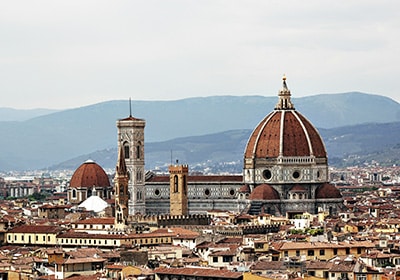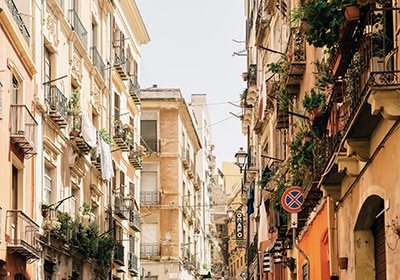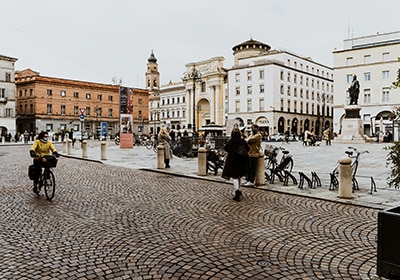Italy’s immigration policy manages how people from other countries can enter, stay, and live in the country. Citizens from the European Union or European Economic Area do not need a visa to move to Italy. However, people from outside these areas need a visa and a residence permit for longer stays.
There are different types of visas depending on your reason for visiting, like tourism, work, or study. Some special visas, like the Digital Nomad Visa, Elective Residency Visa, and Golden Visa, are designed to make moving to Italy easier. These can sometimes lead to permanent residency and citizenship.
This article will guide you through Italy’s immigration system, including visa options, how to become a resident or citizen, the latest immigration rules and more.
State of Italy Immigration
As of 2025, Italy’s immigration environment is undergoing significant transformations. According to the Italian National Institute of Statistics (Istat), in 2024, approximately 5.25 million foreign citizens resided in Italy, which made up 8.9% of the total population.
The country has also been working hard to address labor shortages, especially in sectors like agriculture, tourism, and healthcare, and has expanded some of its work visa programs.
Overview of Italy’s immigration law changes in 2025
|
Category
|
Policy / Law
|
Description
|
|
Work Visas and Employment
|
Decreto Flussi 2025
|
Allocates 165,000 work visas for various sectors, with specific quotas for seasonal, non-seasonal, and self-employed workers.
|
|
Citizenship Reforms
|
Decree-Law No. 36/2025
|
Enacted in March 2025, this law tightens the criteria for acquiring Italian citizenship through ancestry. Applicants must show real ties to Italy, like language, residency, or cultural connections.
|
|
Asylum and Reception
|
Law No. 187/2024
|
Effective from December 2024, this law manages migration flows and international protection.
|
|
Asylum Applications
|
Must be submitted within 90 days of entering Italy to access reception services.
|
|
|
Family Reunification
|
Requires at least two years of legal residence and stricter housing requirements.
|
|
|
Labor Exploitation Protections
|
Special Residence Permit
|
Victims who assist judicial authorities may receive a 6-month renewable permit, allowing access to social services and the legal labor market.
|
Even though Italian immigration laws have changed over time, Italy remains one of the most attractive destinations for migrants. It has one of the world’s strongest passports, offering visa-free access to 129 countries. According to the Global Passport Index by Global Citizen Solutions, Italy ranks high in migrant acceptance and ranks 23rd on the overall report.
Adalberto Pucca, Head of Business Development, also noted that Italy has created a supportive environment for innovation, especially through its Golden Visa program, which helps fund Italian start-ups and businesses.
Italy immigration Laws

Italy’s immigration laws regulate how foreign nationals enter, stay, and live in the country. Citizens of the EU and EEA can live and work in Italy without needing a visa. Non-EU nationals must get a visa to stay longer than 90 days and then apply for a residence permit to stay legally.
Foreigners can apply for residency through family reunification, study, or humanitarian reasons.
After five years of legal residence, they may qualify for a long-term EU residence permit. Those with an Italian parent or grandparent or married to an Italian citizen can apply for citizenship.
Who needs to apply for an Italian Visa?
You need to apply for an Italian visa if:
- You are a citizen of a non-EU or non-Schengen country that does not have a visa exemption agreement with Italy. This applies to short stays (up to 90 days) and extended stays (over 90 days).
- You are a non-EU or non-EEA national planning to live in Italy for work, study, family reunification, humanitarian protection, or permanent residence.
- You are from a visa-exempt country, such as the United States, Canada, or Australia, but plan to stay more than 90 days or enter Italy for reasons that require a long-stay visa, such as employment or education.
- You are not a citizen of the EU, EEA, or Switzerland. Citizens of these countries do not need a visa to enter or live in Italy, but they must register with the local Anagrafe office (Registry Office) if they stay longer than 90 days. This registration is required to formalize their residency in Italy.
What is an Italian Residence permit?

An Italian residence permit (Permesso di Soggiorno) is an official document that allows non-EU citizens to legally stay in Italy for more than 90 days, beyond the validity of their visa. It is issued by the local police headquarters (Questura) and is required for purposes such as work, study, family reunification, or humanitarian reasons.
The residence permit proves your legal status in Italy, giving you the right to live, work, study, and access certain public services. It usually needs to be applied for within 8 days of arriving in Italy and must be renewed before it expires to maintain your legal stay.
There are different types of residence permits depending on your reason for staying, including permits for employment, study, self-employment, family reasons, and asylum seekers.
Benefits of Migrating to Italy
- Education Opportunities: Italy has many public universities with low tuition fees and several programs taught in English. Scholarships are also available for international students. According to the Global Citizen Solutions Global Education Report, Italy ranks 11th in the world for education. The report compares 72 countries using detailed data to help students find the best places to study based on quality, policy, and global access.
- Access to the European Union: Once legally residing in Italy, you gain access to the rest of the European Union for travel, study, and business opportunities. Permanent residents and citizens can move freely within the EU.
- Path to permanent residency and citizenship: Migrants who stay in Italy long-term with legal status can apply for permanent residency and eventually Italian citizenship, which gives them an EU passport.
- Family reunification rights: Italy supports family reunification. Once you get your residence permit, you may bring your family members to join you under certain conditions.
- Business and investment options: Italy offers visas for entrepreneurs, investors, and freelancers. These programs can lead to long-term residence and even citizenship.
Italy Immigration Visa Types

Italy issues several types of visas and residence permits to manage entry and stay for third-country nationals. These rules are part of Italian immigration policy and follow the general standards used in other European countries.
Visa types depend on the purpose of your visit, such as tourism, work, study, or family reasons. If you plan to stay longer than 90 days, you usually need both a visa and a residence permit. Visa applications must be submitted through the Italian Embassy or Consulate in your home country before traveling to Italy.
1. Schengen Visas (Short-Stay Visas): These visas allow travel throughout the entire Schengen Area (including Italy) without needing additional visas. They are divided into three categories:
- Category A: Airport transit visa allows you to transit through the international zone of an airport without entering the Schengen Area.
- Category B: Transit visa allows passage through one or more Schengen countries by land, air, or sea for up to five days.
- Category C: Short-stay visa permits stays up to 90 days within a 180-day period for tourism, business, or family visits. Examples include: Tourist Visa, Business Visa, Family or Friend Visit Visa or Cultural/Event Visa.
2. Limited Territorial Visa: These visas are usually granted for humanitarian reasons and allow the holder to stay only within a limited area in Italy.
3. Long-Term Residence Visas: Issued for stays longer than 3 months, these visas allow multiple entries and exits from Italy during their validity period. They are required for purposes such as work, study, or family reunification. Examples include:
- Work Visa
- Student Visa
- Family Reunification Visa
- Elective Residency Visa
- Digital Nomad Visa
- Start-up Visa
- Golden Visa (Investor Visa)
4. Temporary and Permanent Residence Permits: Temporary Residence Permit are issued initially for up to two years depending on the reason for stay. Permanent Residence Permit are given after five years of continuous legal residence, allowing holders to live and work in Italy indefinitely. Holding a permanent residence permit can be a step toward applying for Italian citizenship.
Italian Residency Options
As highlighted, the Italian government has various residency visa options to suit different needs. Whether you are an investor looking for innovative opportunities, a digital nomad working remotely, or a financially independent person with passive income who does not plan to work in Italy.
Italy Digital Nomad Visa
The Italy Digital Nomad Visa is for non-EU nationals who want to live in Italy while working remotely for clients or companies outside the country. To apply, you need a valid passport, proof of remote work, a stable income of around €28,000 per year, health insurance, and a place to stay. The Italian government issues this visa for one year, and it can be renewed every year. After five years of living legally in Italy, you can apply for permanent residency.
Italy Elective Residency Visa
The Italy Elective Residency Visa is for individuals from outside the European Union who want to live in Italy without working. It is often used by retirees or financially independent individuals. You must show a stable income of at least €31,000 per year from pensions, savings, or investments, along with health insurance, a valid passport, and a home in Italy. The Italian authorities issue this residence permit for one year, and it can be renewed each year. Italy is also a highly regarded country among digital nomads as it ranks 25th on the Global Citizen Solutions Digital Nomad Index and scores an impressed 90 for the procedure index, which covers, fees, application process, processing time and more.
Italy Golden Visa (Investor Visa)
The Italy Golden Visa is for non-EU investors who are ready to support the Italian economy. You can qualify by investing €250,000 in a startup, €500,000 in a company, €2 million in government bonds, or by making a charitable donation. You must also have health insurance and a valid passport. The permit is valid for two years and can be renewed for another three years. After five years, you may become eligible for permanent residency.
Citizenship Routes in Italy
Italian citizenship is granted based on birth, descent, marriage, or residency. The process is regulated by the Italian government and follows specific legal conditions depending on the applicant’s background.
EU citizens, third-country nationals, and individuals with Italian ancestry can all apply if they meet the required criteria. Citizenship offers full rights within Italy and the European Union and is processed by local municipalities or consulates for those living abroad.
|
Route
|
Who It’s For
|
Requirements
|
When You Can Apply
|
|
Non-EU and EU nationals legally residing in Italy
|
– Legal residence: 10 years for non-EU, 4 years for EU citizens
– Stable income
– Clean criminal record
– Italian language skills (B1 level)
|
After meeting the required number of years of legal residence
|
|
|
Spouses of Italian citizens
|
– Legally married for 2 years (or 1 year if living in Italy)
– B1 Italian
– Clean criminal record
|
After required period of marriage
|
|
|
Italy Citizenship By Descent (Jure Sanguinis)
|
Individuals with Italian ancestry
|
– Proof of unbroken Italian lineage
– No renunciation of citizenship by ancestors
|
Can apply anytime, no residency required
|
|
Citizenship By Birth in Italy
|
Children born in Italy to foreign parents
|
– Can apply at age 18 if they have lived continuously in Italy since birth
|
At age 18
|
How Can Global Citizen Solutions Help You?
Global Citizen Solutions is a boutique migration consultancy firm with years of experience delivering bespoke residence and citizenship by investment solutions for international families. With offices worldwide and an experienced, hands-on team, we have helped hundreds of clients worldwide acquire citizenship, residence visas, or homes while diversifying their portfolios with robust investments.
We guide you from start to finish, taking you beyond your citizenship or residency by investment application.




